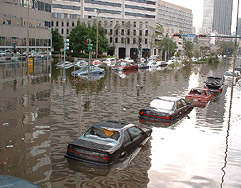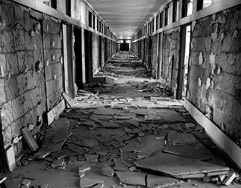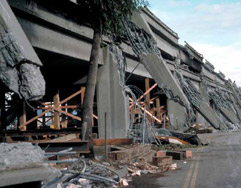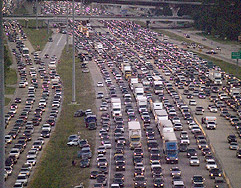By Jack Payton
William Faulkner once bemoaned our country’s automobile culture by dryly observing that “the American really loves nothing but his automobile: not his wife, his child, nor his country … but his motor-car.”
It’s been over 60 years since he penned those lamenting words, but if anything, our collective reliance on the personal automobile – not just as a mode of transportation, but as a symbol of status and individuality – has only become more entrenched.
To Faulkner’s accusation, I can only say “guilty as charged.”
I love cars. I write about them for a living. I’m a self-described gear-head and auto buff, with a garage area always overflowing with more automobiles than I truly need. I’ve got my commuter vehicle – the one that I drive everyday a few blocks to the grocery store, though I could easily walk – and I’ve got my rugged, mountain-man pickup truck. Then there is the wife’s car. And her old car that we keep around, just in case. And a handful of other vehicles (or portions of vehicles) in various states of disrepair.
The personal automobile is, in my life – as it is in the lives of millions of Americans – an integral representation of the rugged, individualistic, freedom-loving lifestyle that I want to believe embodies the essence of me and my fellow countryman.
However, upon reflection, I realize that being “rugged” would be getting out of my climate-controlled vehicle and actually enduring the elements. Instead, I cozy up in my vehicle’s plush interior with satellite radio streaming through the speakers. Is that rugged?
And there is nothing “individualistic” about worshiping at the altar of the personal automobile, unless lemming-like social conformity and crass acceptance of our twisted consumer culture are the new signs of personal independence.
And how “free” do I really feel when I get bent over at the gas pump, an indentured slave to crippling auto financing debt?
So as you can clearly see, there has always been a stark dichotomy between the mythology and the reality of the American automobile culture. And when it comes to the future of our nation’s transportation infrastructure, the outlook is pretty bleak and our collective dependence on personal cars as our first – and often only – means of conveyance seems even more shortsighted.
We keep dumping money into our nation’s roads and highways, undertaking long and expensive construction projects that are already outdated by the time they are finished. We pour resources into the further expansion of our cities into suburban sprawl, and then rage against the bumper-to-bumper gridlock that ensues on the roads that connect these suburbs to their neighboring hubs. The answer is always to build more roads.
So, while we argue politically over spending and our burgeoning deficit, we continue our transportation policy without any discussion or debate, despite the fact that it only promises to be increasingly expensive as our population grows and our infrastructure crumbles.
The other shoe is going to be dropping pretty soon, and it is going to come as an intense shock to those of us that have gotten used to a transportation “business-as-usual” that includes daily solo commutes in large personal automobiles. It will also come as a shock to public entities and municipalities that have cast aside plans to upgrade alternative transportation infrastructure, high-speed rails, commuter trains and buses.
I wish I knew the answer to these dilemmas on a large scale. For my part, my wife and I have started seeking out ways we can reduce our reliance on our vehicles. I haven’t cut out my beloved drives to the mountains, but we have looked for ways to carpool and utilize the meager public transit system that exists in our area.
It’s going to take baby steps to reduce our consumption and reliance on inefficient modes of transportation, and it is going to take a combination of leadership from the top and grass-roots changes from the bottom.
Hopefully someday soon, they’ll meet in the middle and we can start discussing rational plans for our nation’s transportation infrastructure, because right now that elephant in the room is being ignored.
Jack Payton struggles to find and maintain balance between his life-long passion for automobiles and his desire for sustainable, responsible transportation solutions. He is a freelancer, whose writing currently appears courtesy of the online tire retailer, tires-easy.com.
Tags: Automobile Culture, Automobiles, public transit, transportation






 RSS Feed
RSS Feed